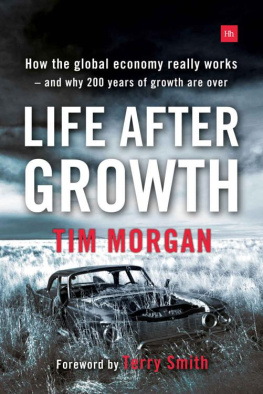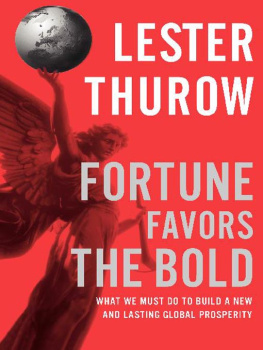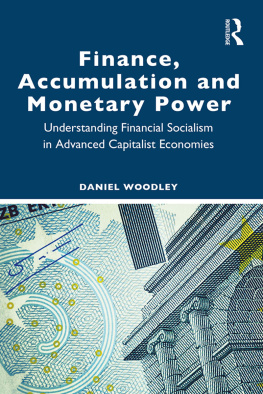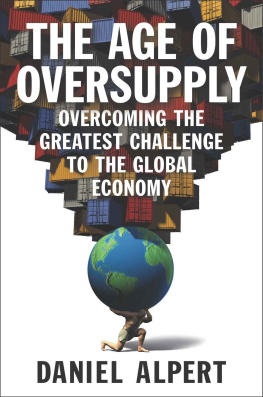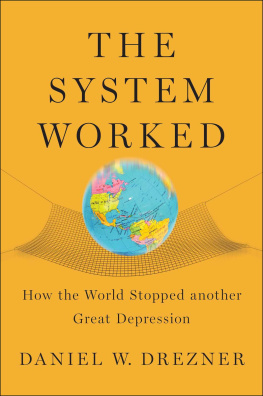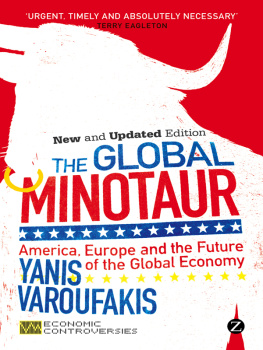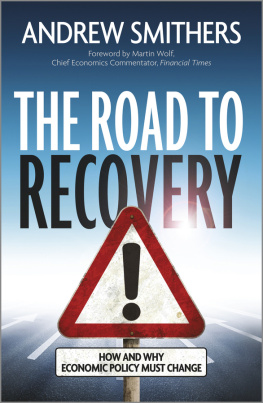Alpert - The Age of Oversupply: Overcoming the Greatest Challenge to the Global Economy
Here you can read online Alpert - The Age of Oversupply: Overcoming the Greatest Challenge to the Global Economy full text of the book (entire story) in english for free. Download pdf and epub, get meaning, cover and reviews about this ebook. City: United States, United States, year: 2013, publisher: Portfolio/Penguin, genre: Politics. Description of the work, (preface) as well as reviews are available. Best literature library LitArk.com created for fans of good reading and offers a wide selection of genres:
Romance novel
Science fiction
Adventure
Detective
Science
History
Home and family
Prose
Art
Politics
Computer
Non-fiction
Religion
Business
Children
Humor
Choose a favorite category and find really read worthwhile books. Enjoy immersion in the world of imagination, feel the emotions of the characters or learn something new for yourself, make an fascinating discovery.

The Age of Oversupply: Overcoming the Greatest Challenge to the Global Economy: summary, description and annotation
We offer to read an annotation, description, summary or preface (depends on what the author of the book "The Age of Oversupply: Overcoming the Greatest Challenge to the Global Economy" wrote himself). If you haven't found the necessary information about the book — write in the comments, we will try to find it.
Daniel Alpert, a progressive Wall Street banker and economist, argues that we are living in the age of oversupply. A global labor glut, a flood of excess productive capacity, and the persistent availability of cheap money have kept the developed world in a perpetual slump--which is unlikely to right itself without new policy solutions. For decades, economists and political leaders failed to see the signs of what became a cataclysmic shift in the global economy. Distracted by a technology boom and massive debt bubble, advanced nations failed to assess the full impact of the flood of labor and capital unleashed by the end of socialist economies until the most recent financial crisis exposed it. As the BRICs (Brazil, Russia, India, and China) and others continue to poach jobs from Western Europe, Japan, and the United States, prosperity in the developed world remains under threat-- Read more...
Abstract: Why Western capitalism is broken and how the U.S. can recover its global economic leadership status The governments and central banks of the developed world have tried every policy tool imaginable, yet our economies remain sluggish, or worse. How did we get here, and how can we emerge from the longest downturn in recent memory? Daniel Alpert, a progressive Wall Street banker and economist, argues that we are living in the age of oversupply. A global labor glut, a flood of excess productive capacity, and the persistent availability of cheap money have kept the developed world in a perpetual slump-which is unlikely to right itself without new policy solutions. For decades, economists and political leaders failed to see the signs of what became a cataclysmic shift in the global economy. Distracted by a technology boom and massive debt bubble, advanced nations failed to assess the full impact of the flood of labor and capital unleashed by the end of socialist economies until the most recent financial crisis exposed it. As the BRICs (Brazil, Russia, India, and China) and others continue to poach jobs from Western Europe, Japan, and the United States, prosperity in the developed world remains under threat. This is an alarming, insightful take on our current challenges, with bold policy prescriptions, from one of our sharpest economic minds--
Daniel Alpert, a progressive Wall Street banker and economist, argues that we are living in the age of oversupply. A global labor glut, a flood of excess productive capacity, and the persistent availability of cheap money have kept the developed world in a perpetual slump--which is unlikely to right itself without new policy solutions. For decades, economists and political leaders failed to see the signs of what became a cataclysmic shift in the global economy. Distracted by a technology boom and massive debt bubble, advanced nations failed to assess the full impact of the flood of labor and capital unleashed by the end of socialist economies until the most recent financial crisis exposed it. As the BRICs (Brazil, Russia, India, and China) and others continue to poach jobs from Western Europe, Japan, and the United States, prosperity in the developed world remains under threat
Alpert: author's other books
Who wrote The Age of Oversupply: Overcoming the Greatest Challenge to the Global Economy? Find out the surname, the name of the author of the book and a list of all author's works by series.


